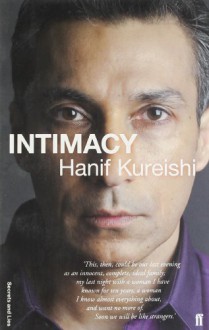Hanif Kureishi's latest novel made many reviewers uneasy on its first appearance, because it cuts so painfully near to the bone. If a novelist's first duty is to tell the truth, then Kureishi has done his duty with unflinching courage. Intimacy gives us the thoughts and memories of a...
show more
Hanif Kureishi's latest novel made many reviewers uneasy on its first appearance, because it cuts so painfully near to the bone. If a novelist's first duty is to tell the truth, then Kureishi has done his duty with unflinching courage. Intimacy gives us the thoughts and memories of a middle-aged writer on the night before he walks out on his wife and two young sons, in favour of a younger woman. A very modern man, without political convictions or religious beliefs, he vaguely hopes to find fulfilment in sexual love. No-one is spared Kureishi's cold, penetrating gaze or lacerating pen. "She thinks she's feminist, but she's just bad- tempered," he says of his abandoned wife. A male friend advises him, "Marriage is a battle, a terrible journey, a season in hell and a reason for living." At the heart of the novel is this terrible paradox: "You don't stop loving someone just because you hate them." Male readers will wince with recognition at the narrator's hatred of entrapment and domesticity, and his implacable urge towards freedom, escape, even loneliness. Female readers may find it a truly horrific revelation. Kureishi is only telling it like it is, in staccato sentences of pinpoint accuracy. By far the author's best yet: a brilliant, devastating work. --Christopher Hart
show less

